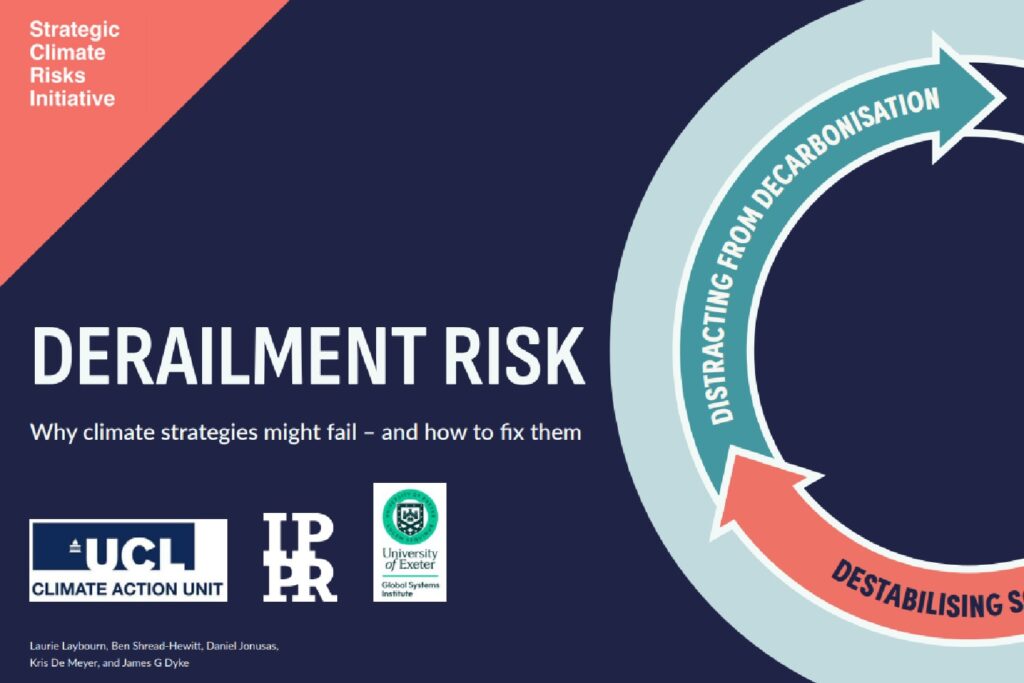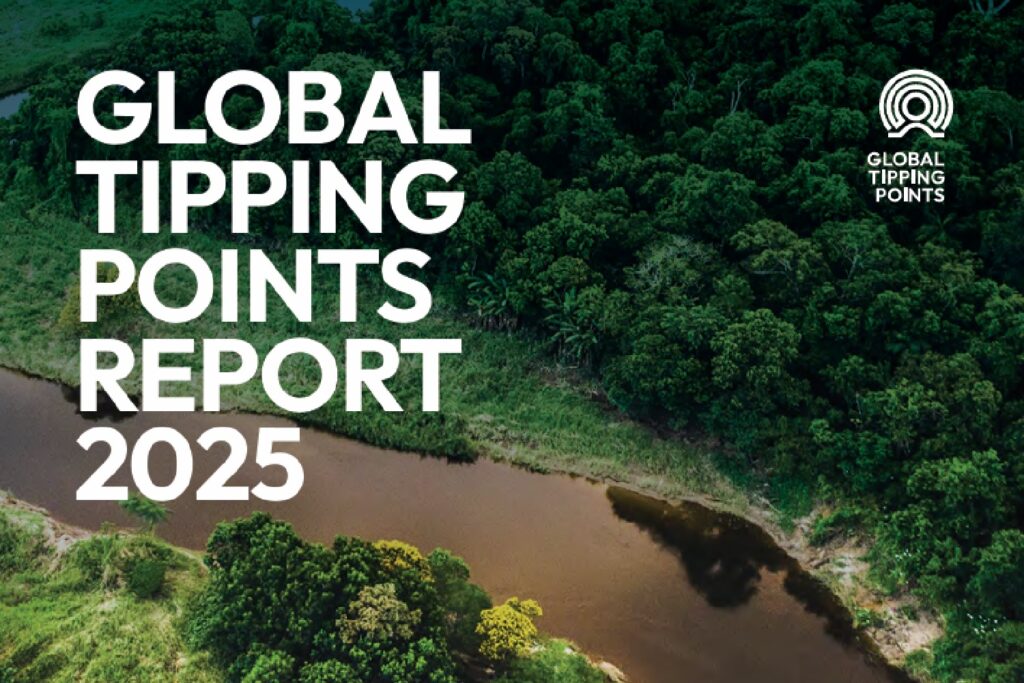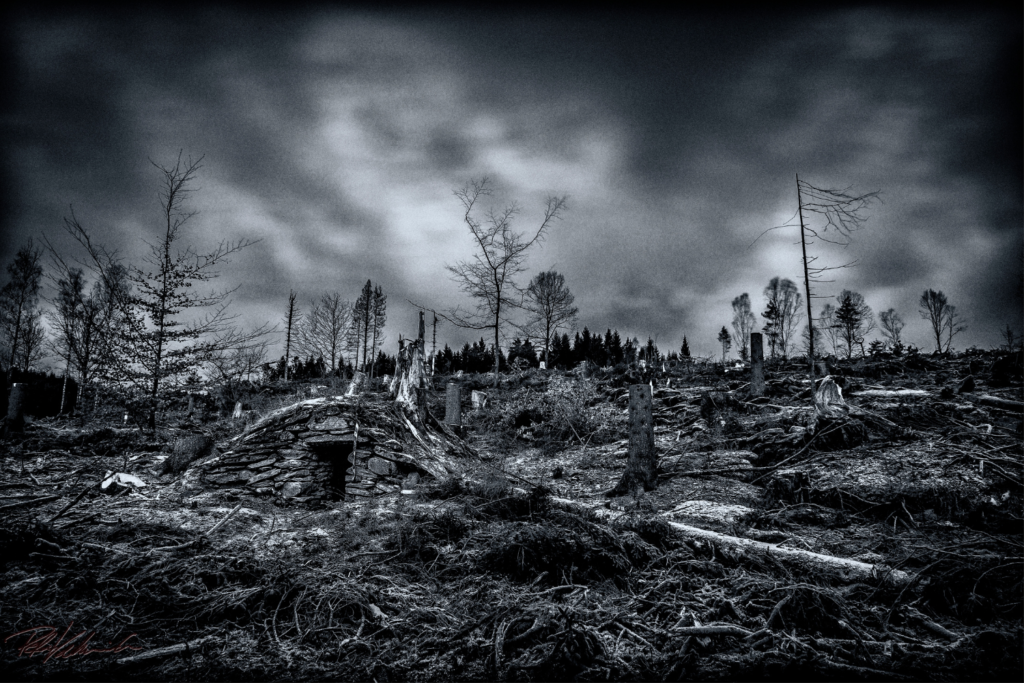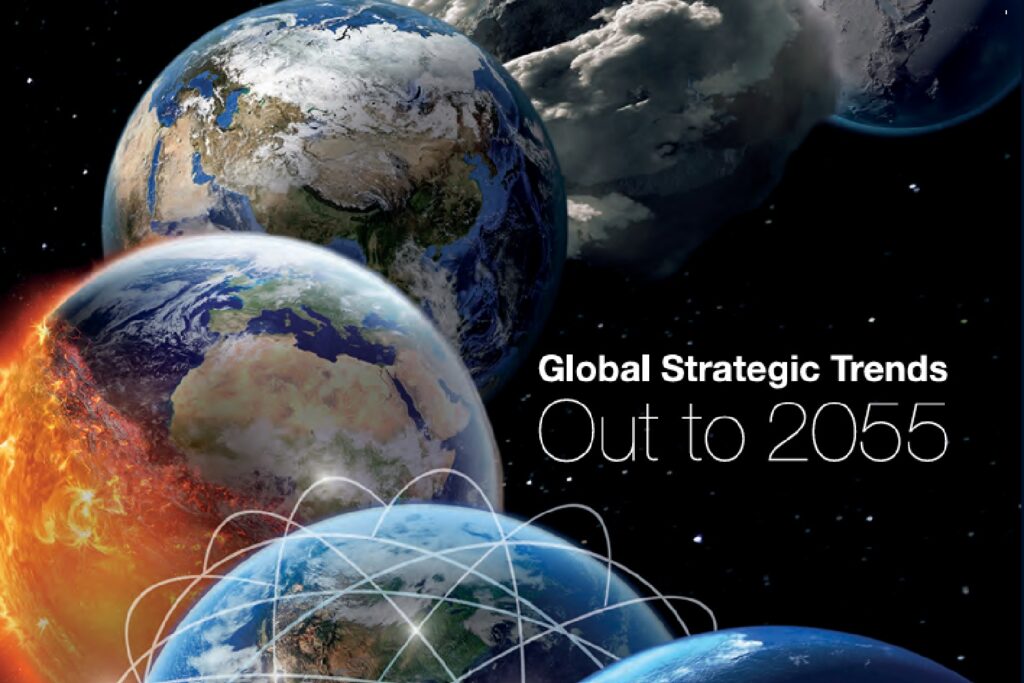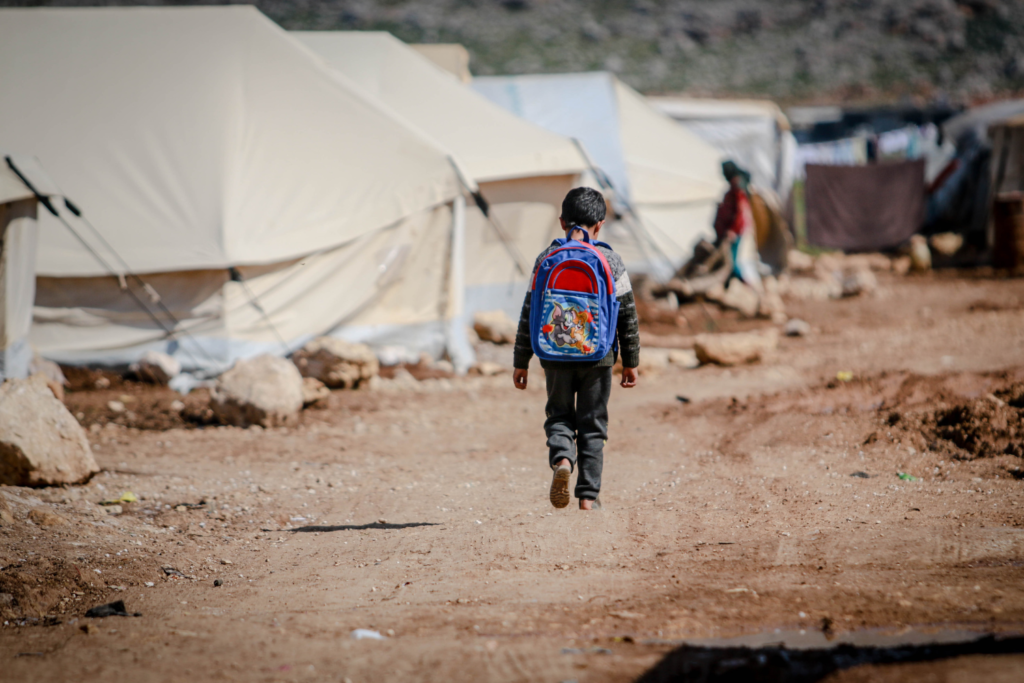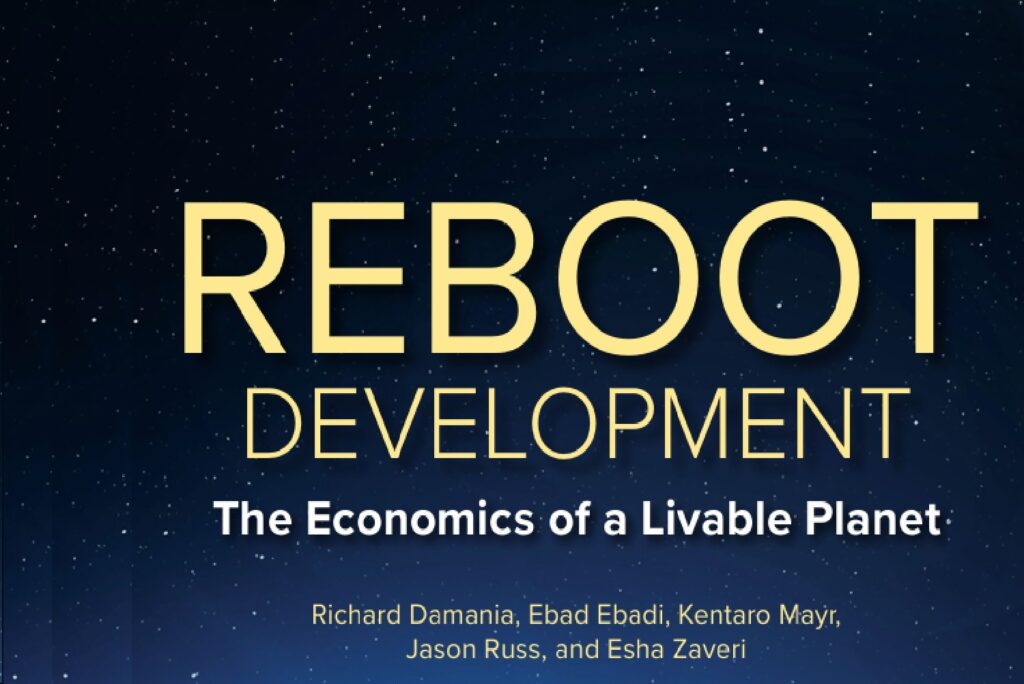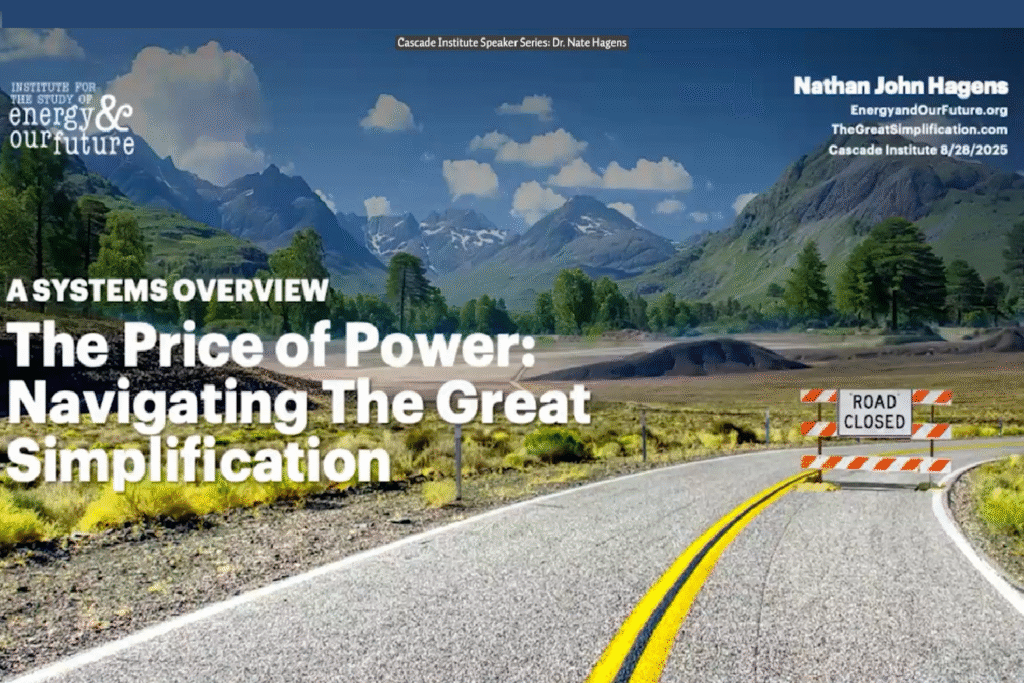Derailment Risk
This report presents a systematic effort to theorize what the authors call “derailment risk,” a vicious cycle in which escalating climate impacts and the disruptive consequences of green transitions undermine climate action. Drawing on twenty global workshops and hundreds of expert contributions, the project mapped how worsening disasters, resource diversion, and political backlash can derail […]

